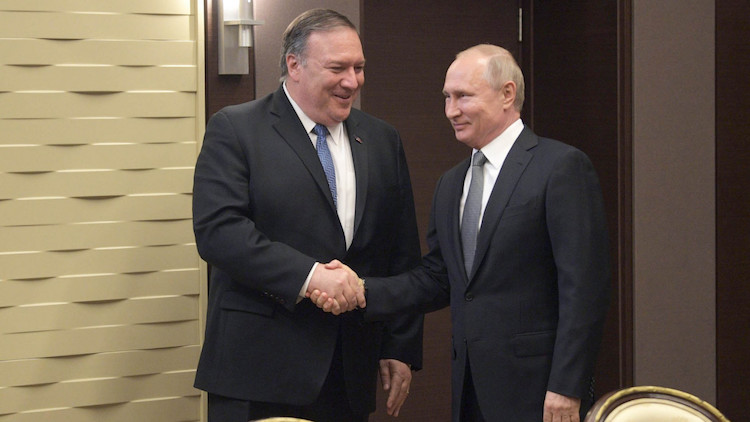By Kingston Reif and Shervin Taheran

While Kingston Reif is Director for Disarmament and Threat Reduction Policy, Shervin Taheran is Research Assistant at the Arms Control Association, which carried this report on May 24, 2019.
WASHINGTON, D.C. (IDN-INPS) – Following a May 14 meeting in Sochi, Russia, with Russian President Vladimir Putin and Foreign Minister Sergey Lavrov, Secretary of State Mike Pompeo told reporters that the two countries “agreed that … we will gather together teams that will begin to work not only on [the 2010 New Strategic Arms Reduction Treaty] New START and its potential extension but on a broader range of arms control issues that each of our two nations have.” [2019-05-24]
But it remains unclear when such talks will begin, who will lead the U.S. negotiating team, what the Trump administration would be willing to put on the table in return for bigger concessions from Russia and China as part of broader arms control talks, and whether New START would be extended in the absence of progress on a more comprehensive deal.
Last month, a senior administration official told reporters that President Donald Trump had directed his administration to seek a new arms control agreement with Russia and China. The official told CNN that the agreement should include “all the weapons, all the warheads, and all the missiles.” The official criticized New START for only limiting U.S. and Russian deployed strategic nuclear weapons.
At a May 15 Senate Foreign Relations Committee hearing on the future of nuclear arms control, Andrea Thompson, undersecretary of state for arms control and international security, said that the Trump administration “has not made any decision on a potential extension of New START.” An interagency review of the treaty and whether to extend it has been ongoing for about a year.
Thompson added that several issues would have an impact on an extension decision, including Russia’s development of new types of strategic weapons systems and modernization of its large stockpile of non-strategic (or tactical) nuclear weapons, Russia’s record of violating arms control agreements, and “China’s lack of transparency regarding the scope and scale of its nuclear modernization program” and unwillingness to discuss nuclear weapons issues with the United States.
Russia has repeatedly expressed interest in extending New START, but it has raised concerns about U.S. procedures to remove submarine-launched ballistic missile (SLBM) launchers and some B-52 bombers from treaty accountability.
Moscow has also expressed a willingness to begin a dialogue with the United States on broader strategic stability issues, but it has its own list of concerns about U.S. policies and weapons systems – including missile defence systems, cyber weapons, weapons development in space, and advanced conventional arms.
The Trump administration has shown no indication that it would be willing to limit these weapons in an agreement with Russia or China. Even if it were willing to do so, it is highly unlikely an agreement could be reached before New START expires in less than two years.
Trump told reporters May 3 that he had already spoken to China about a trilateral nuclear arms control deal, and that “they very much would like to be a part of that deal.” But a Chinese Foreign Ministry spokesperson said May 6 that China “will not take part in any trilateral negotiations on a nuclear disarmament agreement.”
In a May 6 interview in Finland, Pompeo acknowledged that a trilateral deal involving China and that covers all types of U.S. and Russia nuclear weapons might be “too ambitious.” He noted that “there’s just a couple years left before New START expires” and that it may be necessary to address the expiration of the treaty “on a bilateral basis.” [IDN-InDepthNews – 24 May 2019]
Photo: U.S. Secretary of State Mike Pompeo traveled with Russian President Vladimir Putin. Credit: Kremlin.ru
IDN is flagship agency of the International Press Syndicate.
facebook.com/IDN.GoingDeeper – twitter.com/nukeabolition






